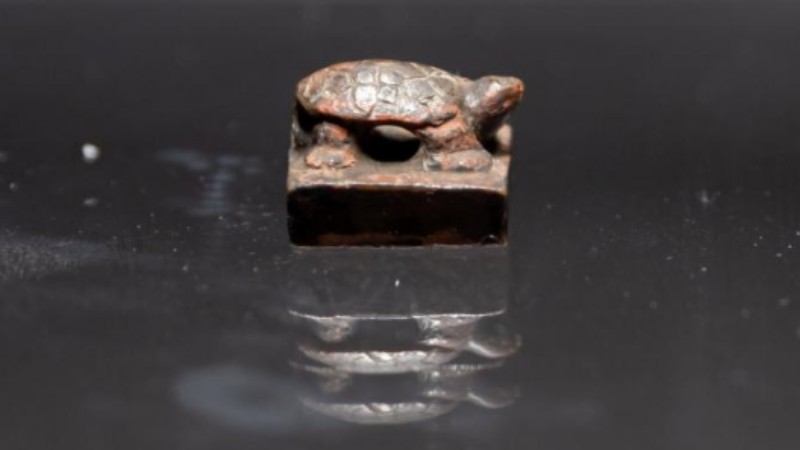Interview: Canadian scholar calls for more resources, support for Indian residential school investigation
OTTAWA, March 4 (Xinhua) -- It is urgent to investigate the deaths and abuses in the Indian Residential School system and more resources and support are needed, a Canadian scholar on Indian residential school history told Xinhua in a recent interview.
The most recent findings at the former Port Alberni Indian Residential School on Vancouver Island showed that there is still tremendous amount of work to be done to uncover the dark pages of Indian residential schools in Canadian history, said Dr. Tricia Logan, the interim academic director at the Indian Residential School History Dialogue Center at University of British Columbia.
First Nations in the Canadian province of British Columbia recently made public that 17 suspected unmarked burials were discovered at the former Port Alberni Indian Residential School site, and the school's 67 dead children were identified through research of archives.
START OF SEARCH
"There are investigations going on in approximately 18 different locations across British Columbia. First Nations communities and survivor communities have been involved. Survivors, families of survivors, inter-generational survivors know about what's going on," said Dr. Logan, a Metis -- a descendant of white settlers and native residents in Canada.
She said the Port Alberni School had students from over 100 different communities in British Columbia and other provinces.
"The number of survivors and inter-generational survivors involved is huge. It's very far-reaching," Dr. Logan said.
According to GeoScan, a local land surveyor that conducted the ground-penetrating radar scans since last July, the 17 suspected graves represent the minimum number believed to be on 12 of 100 hectares that they searched at the former Port Alberni School site.
DIGITIZATION AND PROPER CARE OF RECORDS
Dr. Logan highlighted that the Tseshaht First Nation which leads the investigation identified 67 First Nation children who died at the school through research of various historical records.
While government and church archives and records of Indian residential schools are now more accessible than several years ago, she was worried that many relevant documents are still unavailable to researchers and First Nations, as many historical records are decaying rapidly and need to be digitized as soon as possible.
"There's a great deal of urgency" because researchers need to align the investigations and the work of individual communities, ground-penetrating radar research, archaeological research and community- and survivor-led research, she said. "That level of urgency is to match the records with each one of those different sites and investigations."
They also need to assure digitization and proper care of the records and see how to make them accessible to the communities depending on levels of privacy and restrictions, she added.
PART OF COLONIAL SYSTEM
Dr. Logan stressed that for over 100 years and until even now, native residents including First Nations, Inuits and Metis face systematic oppression and discrimination, and Indian Residential School is just a part of that colonial system.
Survivors, their families and communities constantly require Indian hospitals, day schools, day scholars, other kinds of institutions that were very closely affiliated with residential schools to be included in the research, especially where it involves student diseases, deaths and abuses, she said.
"We are trying to look at residential schools and the history of them in a much broader scope for all of Canada," said Dr. Logan, adding that they are also investigating how colonialism and its structures, like residential schools, child welfare system, Indian hospitals, day schools, were involved in missing and murdered indigenous women and girls, and "how the effects and the ongoing impacts of colonialism carry on today."
The residential schools are not isolated or a system on their own, but well connected to other structures of colonialism, like day schools and Indian hospitals, and today's child welfare system, she added.
For more than a century since the 1830s, school-aged children of the indigenous community were snatched from their mothers' arms and corralled in distant residential schools funded by the Canadian government, where they were surveilled by the clergy of the Christian church, barred from family visits, and institutionalized away from their cultural traditions.
About 150,000 First Nations, Metis and Inuit children are believed to have fallen victim to the cultural assimilation. In these schools, children were subject to abuse and torture as the Truth and Reconciliation Commission documented at least 4,100 deaths. The former Port Alberni Indian Residential School site is the latest of several locations being searched for possible unmarked graves of children.
Photos
Related Stories
- Memorial march held in Vancouver to commemorate missing and murdered indigenous women and girls
- 30th Gingerbread Lane event held in Vancouver, Canada
- Homicide rate of Indigenous victims disproportionally high in Canada: statistics
- Canada faces shortage of children's medicines as respiratory viruses surge: report
- Canadian parents struggle to book doctors' appointments
Copyright © 2023 People's Daily Online. All Rights Reserved.









